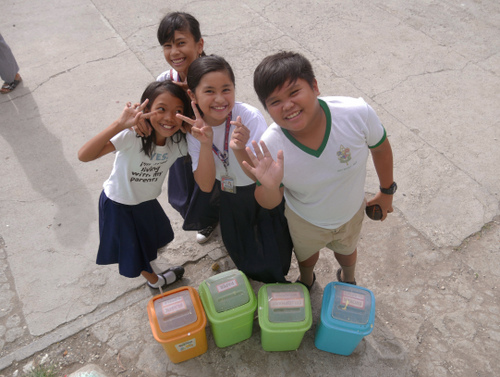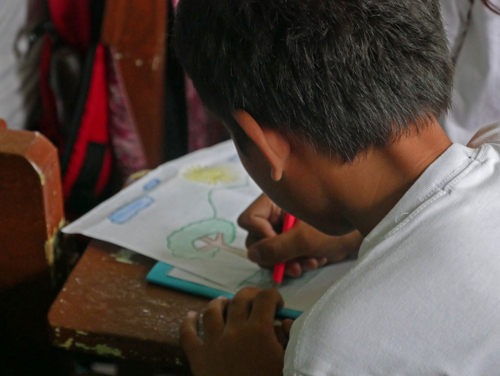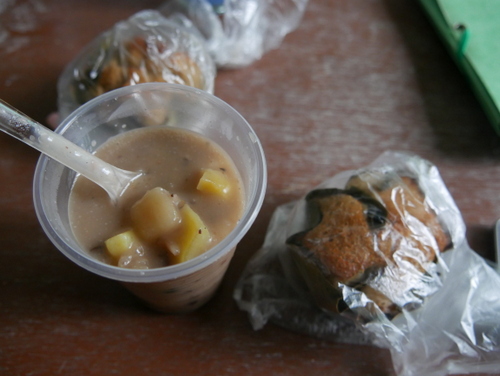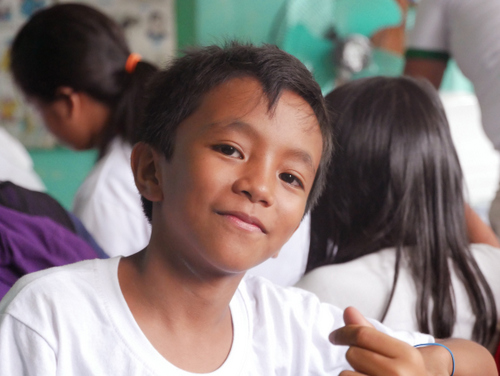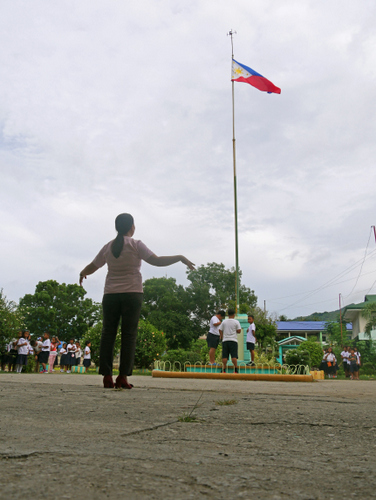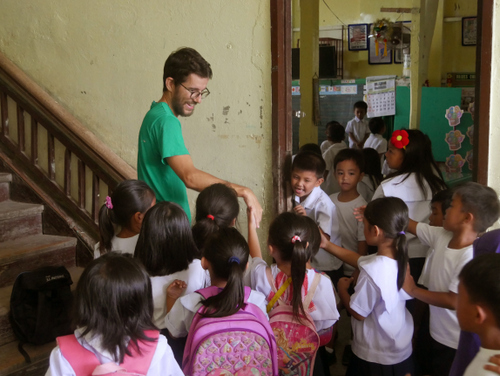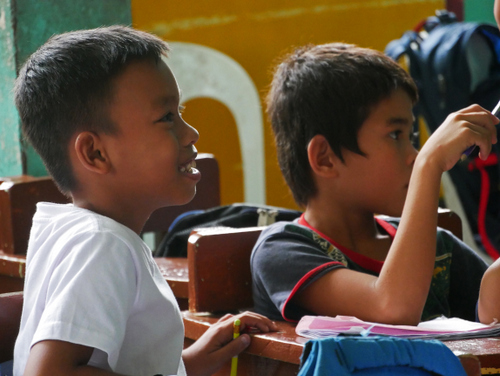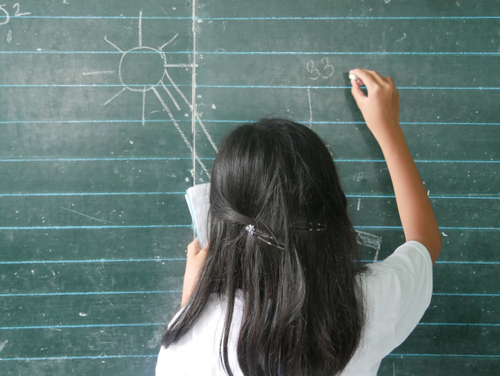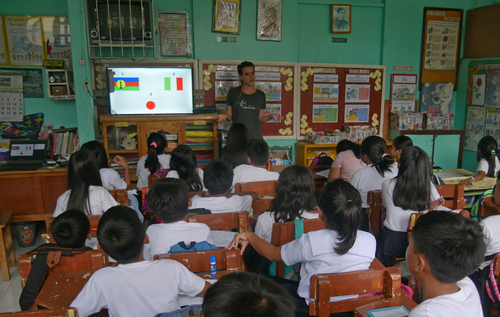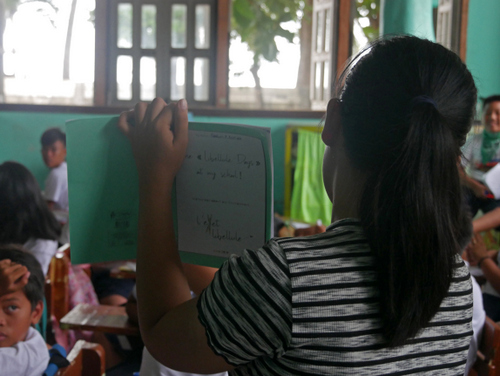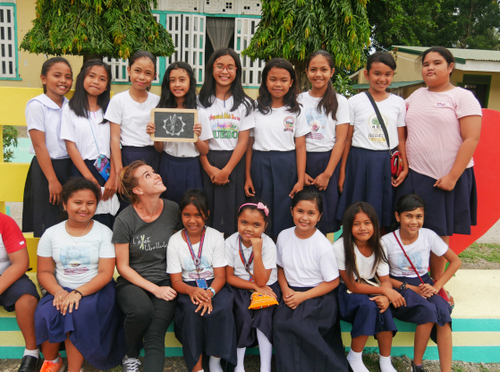- Maybe because some of the students are too irresponsible.Azhel, 11
Summary
On recommendation of our super host and guide Gery, we descend to the island of Bohol, in the Visayas archipelago. The island of Bohol is surrounded by protected marine reserves, the mangrove borders a significant part of the coast and many sources and cascades are spread over the territory. Ecotourism has developed very widely.
Far from the tourist attractions and the seaside resort of Alona Beach, we stop a little by chance in the small town of Duero (pronounce the "r" rolled). We cross the path of Elloiza, who will be our good fairy during our stay! She installs us in an uninhabited house, located directly on the beach! We live to the rhythm of the fishermen, trying not to miss the sunrise and watching the lights of boats returning at dusk. Elloiza's whole family welcomes us very warmly.
After a round trip to the regional capital Tagbilaran to certify our project with the School Division Superintendent of the island, the doors of the school of the small town of Duero open to us! All that remains is to find an interpreter to animate the Libellules days in this class where the level seems much more heterogeneous than in Pagbilao. And what's more, our few words of Tagalog learned at the beginning of our stay are not very helpful to us since the most spoken language in Bohol is the Visaya! This time again, we can count on Elloiza's family. It is Gilliane, sometimes accompanied by her brother who will help us to make ourselves understood among the 32 pupils of the class and vice versa.
We are attending Monday morning's flag raising. On the program: national anthem, prayer, speech by the director and finally, a choreography taken by all, students and teachers!
From the first workshops, we realize that the sound level is very high, between the fans, the students of Grade 1 of the neighboring class who recite their lesson and the old floor that creaks in each of our steps and those of the class above. The agitation of the students adding to it, we finish these two rather tired days and hoarse throat! A word from a student leaves a good memory of this class: "Sorry because we're a little naughty but we're thankful for you"
In addition to classroom workshops, we take advantage of having long days to set up a practical workshop related to what we have been observing for a few weeks. Indeed, public or common garbage cans (at school, in the street, in shopping centers) are systematically divided into 4 compartments to sort waste. Yet sorting does not seem to be in the habits of Filipino adults and children. In this school in Duero, we find that students randomly put their trash in the 4 colored trays. So everyone out for a "Clean Recess" operation! Children spontaneously form small groups to collect waste, mainly plastic. The sorting is not so simple but the students help each other and get along rather well!
These students live in an environment where Nature is still very present, generous in many respects with many fruit trees, a sea rich in fish, .. In addition the government for about 15 years sets up a pro-environmental policy especially in schools. Thus, children know the endemic species, want to replant trees and in this school, all students of Grade 5 and Grade 6 must maintain the garden of the school.
We hope to have watered and sunny the small seeds planted before us in these young Filipinos.
